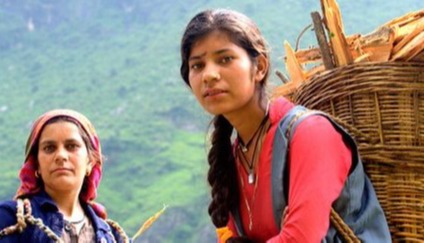Knowledge Products > Details
Strategy Report- Compendium of Community and Indigenous Strategies for Climate Change Adaptation: Focus on Addressing Water Scarcity in Agriculture

Central Asia, India - Journey with wood
©FAO
This report makes an inventory of indigenous and community adaptation practices across the world. The inventory was mainly done through literature review, field work and meetings with selected organizations. The report identified fifteen major types of ancient and traditional RWH categories that were alike in practice and function despite the different climatic regions, in which they were found, or the cultures that practiced them.
Indigenous knowledge provides a crucial foundation for community-based adaptation strategies that sustain the resilience of social-ecological systems at the interconnected local, regional and global scales. In spite of challenges and knowledge gaps, these strategies have the potential of being strengthened through the adoption and adaptation of introduced technology from other communities or modern science.
For example, Zai System has been practiced in
many parts of Burkina Faso and Mali. The zai are pits that farmers dig in a rock-hard barren land, into which water penetrates.
Farmers have shown interest in the zai system as they notice that the pits efficiently accumulate and concentrate runoff water and function with small quantities of manure and compost.
Message from farmer to farmers: “We didn’t know the techniques of how to dig zai and half-moon. Now that we have this knowledge, we are able to manage the land and sow seeds. Even if there
is no rain for 10 days, the seeds will stay alive. I’m happy about this. Since I have applied this to my farm, I now train other people.” — Naba Telijieba, rural farmer in the village of Diora.
For more information press here
Related resources
- Farmer to Farmer Spread of Agroecology in the Eastern Region of Burkina Faso
- The Global Framework on Water Scarcity in Agriculture
- Assessing the Governance of Tenure for Improving Forests and Livelihoods
- Voluntary Guidelines on the Responsible Governance of Tenure of Land, Fisheries, and Forests (VGGT)
